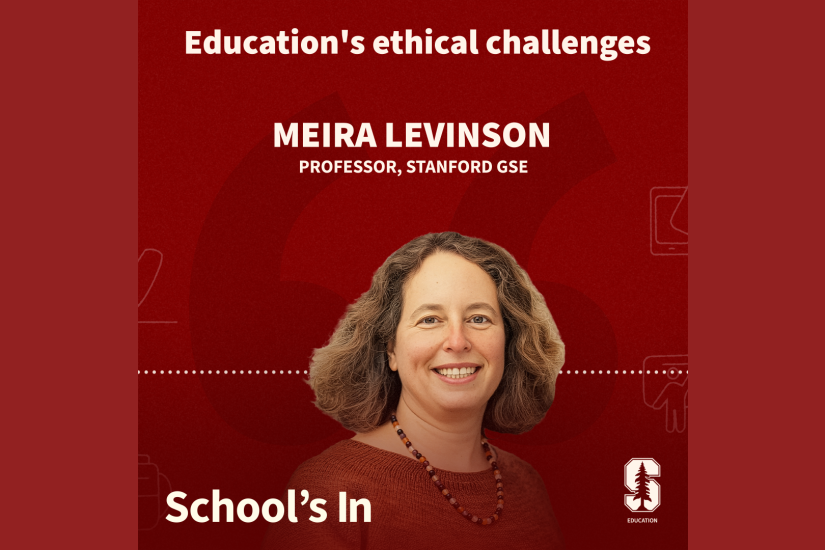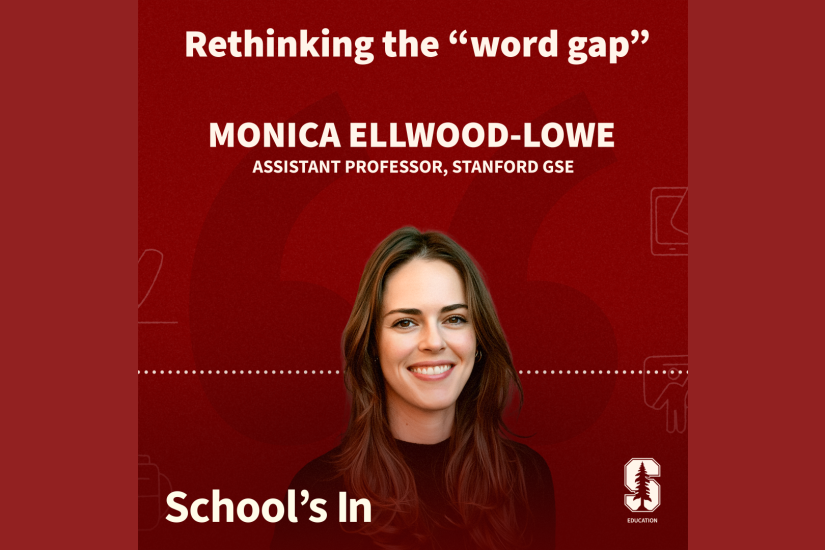
How to teach data science in K-12 schools? Stanford-led team launches “Big Ideas”
Amid a growing push for schools to better prepare young people to navigate a world awash in data, a team of scholars led by Stanford Graduate School of Education Professor Jo Boaler has introduced a groundbreaking tool for educators: “Big Ideas in Data Science,” a proposed set of standards for teaching data science to students in kindergarten through tenth grade.
“School districts are starting to recognize the need for students to develop data literacy, and policymakers are calling for more attention to it,” said Boaler, the Nomellini and Olivier Professor of Education at Stanford and co-founder of youcubed, an organization providing resources for math learning. “But no standards had been developed to guide schools and teachers.”
The new tool produced by Boaler and her team, with Rob Gould, vice chair of the department of statistics at UCLA, offers classroom tasks, discussion topics and teaching advice for all grade levels from kindergarten through tenth grade. Tailored for each grade level, the “Big Ideas” are designed to be incorporated into a broader curriculum, connecting data science concepts to content already taught in the classroom.
These standards build on guidelines developed by the American Statistical Association, which outline a four-step cycle for data investigation: formulate statistical investigative questions, collect/consider the data, analyze, and interpret and communicate.
“We want to encourage students to develop curiosity about events in their lives that can be explored with data, and to learn how to pose their own investigative questions on topics that interest and affect them,” said Cathy Williams, co-founder and executive director of youcubed and a lead author of the new standards. “We also want to help them consider the ethical implications of data collection and analysis.”
Teaching data science in K-12 schools is about much more than preparing young people for well-paying careers, Boaler said. It affords an alternate, more equitable pathway that appeals to broader groups of students. “In most school districts in the United States, high-achieving students engage in what’s known as a ‘race to calculus,’ where those who are chosen to go forward are disproportionately white and male,” she said. “Data science isn’t a lower-level pathway. It’s a rigorous discipline that doesn’t require tracking. It relates to students’ daily lives and communities and raises awareness of issues in society.” In addition to the new K-10 standards, youcubed has also developed a high school curriculum now taken by over 25,000 students nationwide.
While establishing the new standards was a key step forward in integrating data science into the K-12 curriculum, Boaler said, much work remains – including spreading greater awareness of the value of teaching data science in K-12 schools and preparing educators with the knowledge and skills they need to teach it.
“But these standards are an important piece of the puzzle,” said Boaler. “We hope they help elevate a content area that is still in its infancy but absolutely critical for preparing citizens who can navigate our data-filled world.”
To access the Big Ideas in Data Science, visit www.youcubed.org/data-big-ideas.
In addition to Jo Boaler, Rob Gould and Cathy Williams, the team that developed the new standards included Jack Dieckmann, research director of youcubed, and GSE doctoral students Tanya LaMar, Jesse Ramirez and Megan Selbach-Allen.
Faculty mentioned in this article: Jo Boaler



